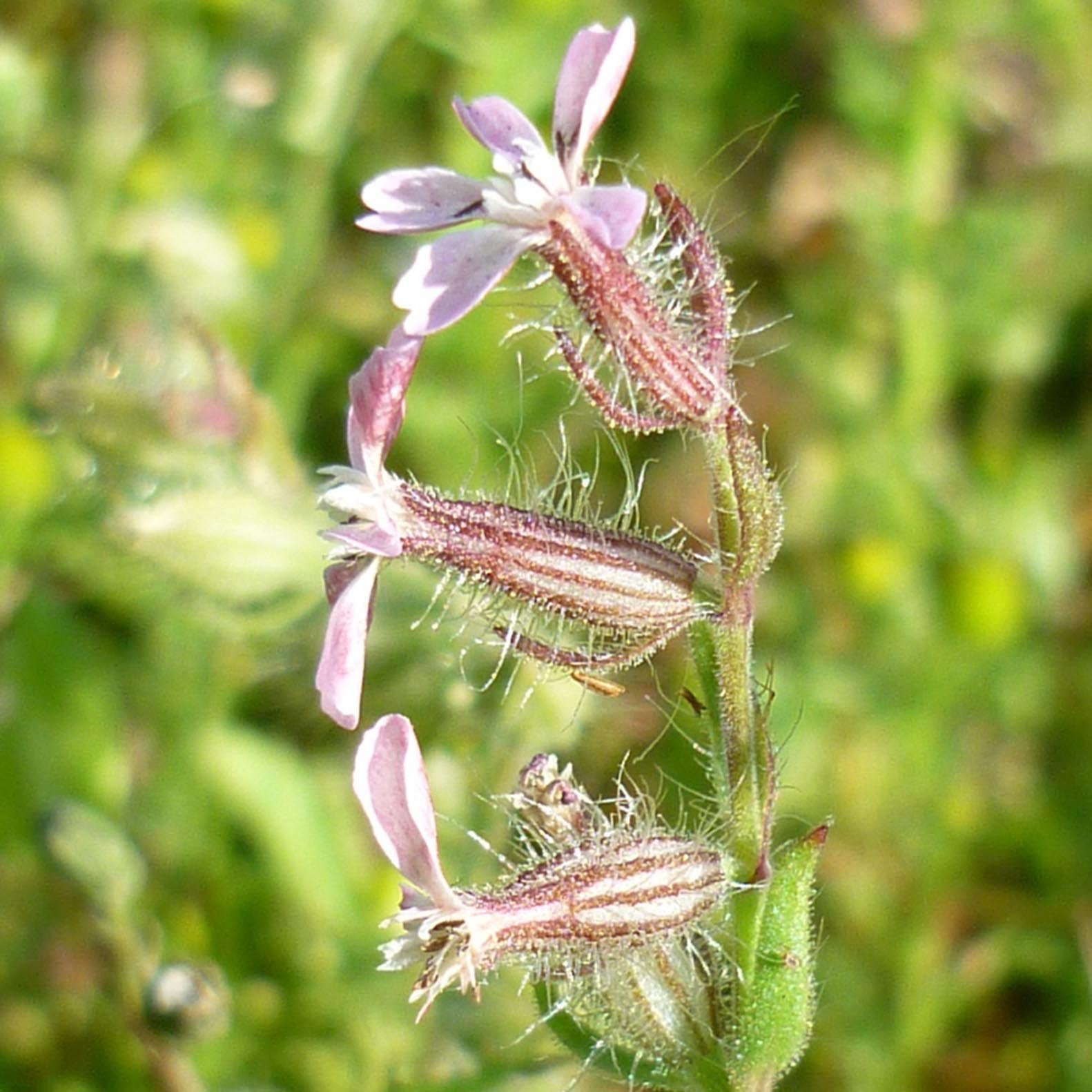Rescue donkeys to give rare British wildflower boost in biodiversity push
The small-flowered catchfly has been wiped out from 70 per cent of its range, while populations of numerous other species are also in decline due to intensive farming and use of pesticides

Your support helps us to tell the story
From reproductive rights to climate change to Big Tech, The Independent is on the ground when the story is developing. Whether it's investigating the financials of Elon Musk's pro-Trump PAC or producing our latest documentary, 'The A Word', which shines a light on the American women fighting for reproductive rights, we know how important it is to parse out the facts from the messaging.
At such a critical moment in US history, we need reporters on the ground. Your donation allows us to keep sending journalists to speak to both sides of the story.
The Independent is trusted by Americans across the entire political spectrum. And unlike many other quality news outlets, we choose not to lock Americans out of our reporting and analysis with paywalls. We believe quality journalism should be available to everyone, paid for by those who can afford it.
Your support makes all the difference.Rescue donkeys at a Devon sanctuary may in turn help to rescue one of the UK’s rarest wildflowers as part of a planting programme which it is hoped could help boost broader biodiversity.
The small-flowered catchfly, a sticky-stemmed variety of campion, with small pinkish-white flowers, was once common across Britain, but the species has declined dramatically in recent decades, disappearing from 70 per cent of its range, with small populations of the plant only now surviving in Wales and the south and west of England, mostly by the coast.
The declines are blamed on the rise of intensive farming techniques and increased use of herbicides.
Now, 20,000 catchfly seeds have been sown on plots in Devon at the headquarters of international animal welfare charity the Donkey Sanctuary, near Sidmouth.
Next spring, the donkeys will be walked over the seeded plots in a process known as “treading in”.
The animals’ hooves ridge and compact the earth, helping embed the seed into the ground and hopefully boosting the flower’s chances of germination.
The seeds have been sown on plots alongside other wildflowers and grains chosen to create a landscape which can support threatened farmland birds such as the skylark, yellowhammer and linnet.
Once widespread, skylarks are declining rapidly due to habitat loss; yellowhammers, traditionally regarded as farmland birds, are also dying out; and linnets, named after the linseeds they love to eat, are declining due to agricultural intensification.
Ruth Angell, ecology and conservation manager at the Donkey Sanctuary, said: “Increasing biodiversity is essential for an enriched and resilient environment which can support rare species as well as our resident herds of donkeys.
“Our donkeys will be able to enjoy a walk with our grooms and benefit from one-to-one time while they walk over the plots.”

She added: “Our team of conservation officers and volunteers work on a range of projects across our sanctuary sites, including woodland, hedge and grassland management, to improve habitat for both wildlife and donkeys.”
The effort to save the small-flowered catchfly is part of the British conservation charity Plantlife’s “Colour in the Margins” project, which works to support rare field plants across the country.
The project is part of a wider programme to save more than 20 threatened species from extinction and boost 200 more through 19 projects across England, with support from the National Lottery Heritage Fund.
Cath Shellswell, manager for the Colour in the Margins project at Plantlife, said: “We're incredibly grateful to partners like the Donkey Sanctuary who are helping these fantastically rare wildflowers come back from the brink of extinction by giving them a helping hand in one of their original regional strongholds.”
Additional reporting by PA
Join our commenting forum
Join thought-provoking conversations, follow other Independent readers and see their replies
Comments